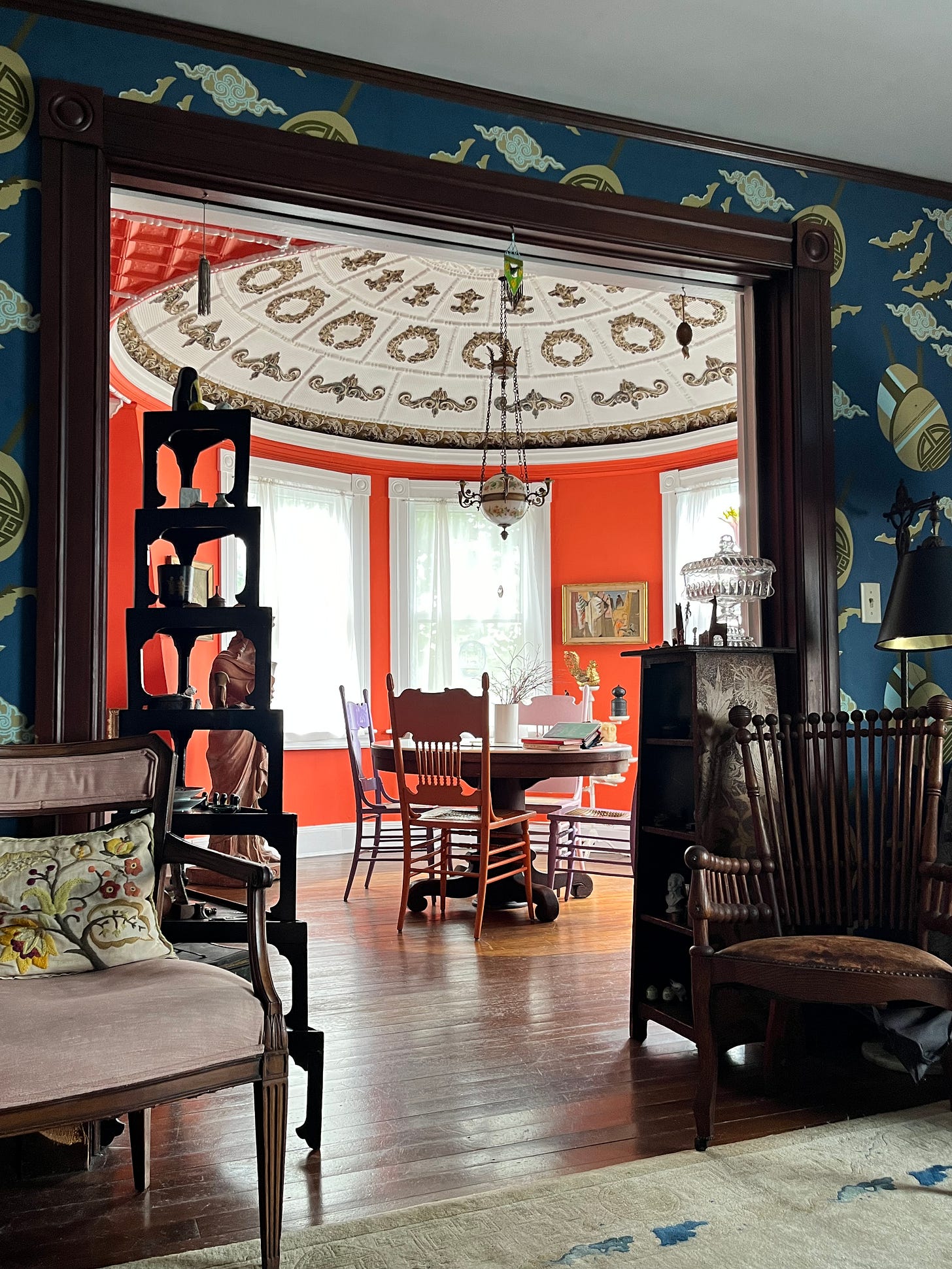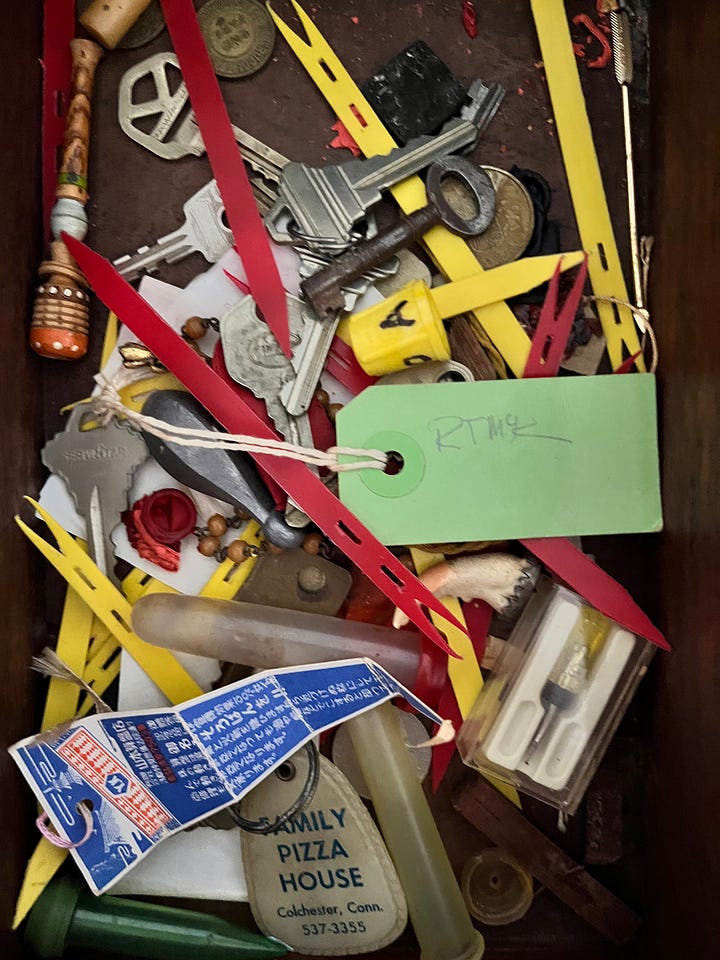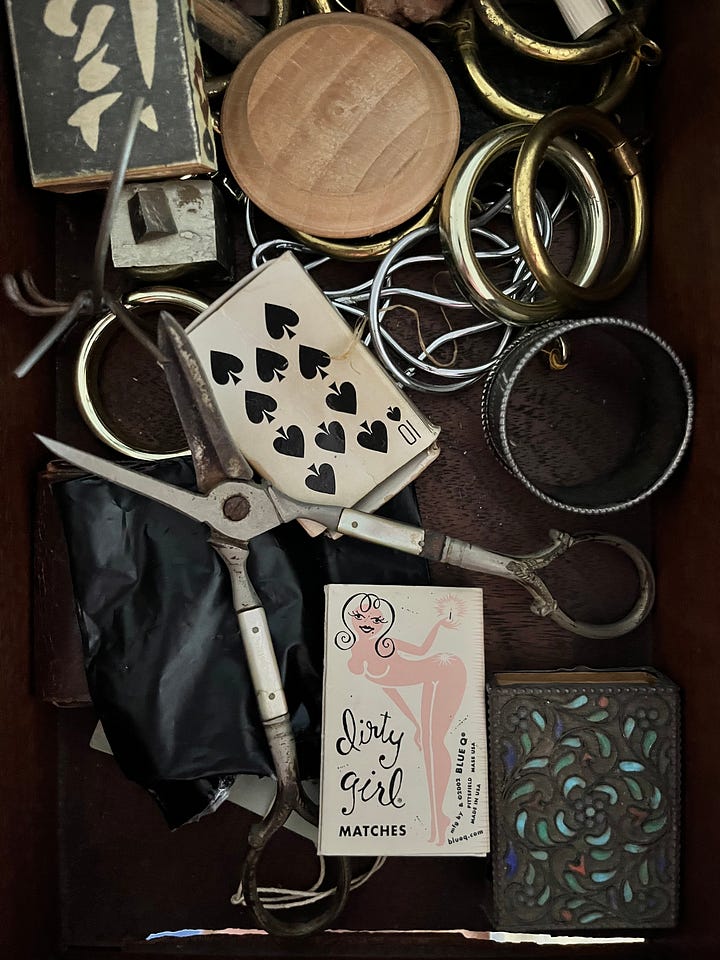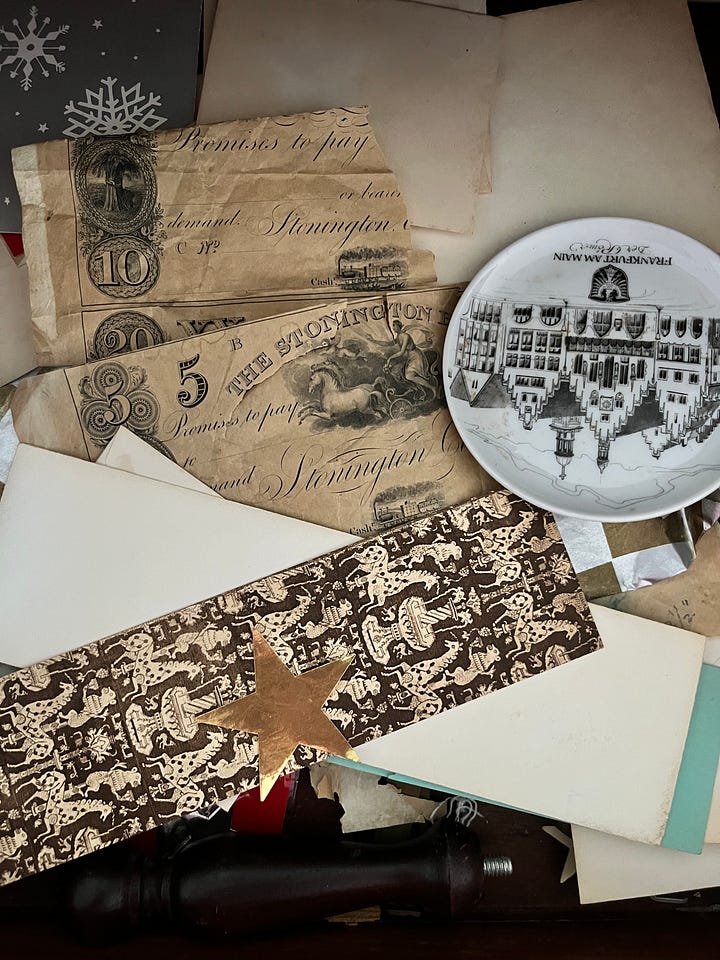
As I type this I am seated at the table where poet James Merrill and his partner David Jackson would consult the Ouija board Merrill used to compose his great long poem The Changing Light at Sandover. The poem itself is a polyphonic event in which a variety of characters—some fictional, others real—arise from the spirit realm and communicate with Merrill and Jackson. W.H. Auden speaks, as does Maya Deren, Mirabell who takes the form of a peacock is a sort of spirit guide, and a character from the first century named Ephraim becomes a kind of spiritual advisor to the two mean
Merrill worked on the poem for twenty years and the work stretches to some 560 pages. I will admit here that I have not read all of it; I would surmise that not many people have. Reading The Changing Light at Sandover leaves one with the sense of not being quite clever enough to grasp the nuance and references and that the poem may also just be too uninvolving to hold one’s interest.
I decided, however, to give it another shot. I am here to tell you that the first book of Sandover, called The Book of Ephraim, is utterly engaging while also being utterly batty. Written mostly in stately blank verse (unrhymed iambic pentameter), it is a book about a series of séances, and the opening passages describe the setting and the tone of the inquiries, and the thrill the two men experience when the blue willow-ware cup they use as a planchette begins to jump and move about their hand-drawn board. The success Merrill and Jackson have is wild—so many astute spirits line up to speak, and they are not shy. They speak of the conditions of the spirit realm and the immortal life, which exists most definitely. They offer advice that is often quite bland: “USE USE USE/YR BODIES & YR MINDS,” and they offer a kind of running commentary on Merrill and Jackson’s relationship and on the elevated spiritual status that has been bestowed on them. Ephraim tells Merrill and Jackson that the spirits have been watching them and that their union as partners forms a “FORTUNATE CONJUNCTION.”
What strikes me now—and what moves me about the poem—is the utterly weird queerness of it. Long before same-sex marriage, these two men built a queer life together (one that accommodated numerous other lovers, tricks, romances over many years), and that life was now being seen not just by their friends and families, with whom they navigated the many difficulties gay couples face in receiving acknowledgment and recognition, but by the great worthies moving through the kingdom of the dead. The spirits are there to tell them that their relationship and their lives are bigger and more important than they might imagine, and that there is a busy, gossipy, cultured realm that lies just beyond this pedestrian earthbound one.




What was actually going on here on Water Street during those twenty-some years Merrill and Jackson sat down at the table and turned over the teacup to invite the ghosts to speak? Was it real? Did they believe in what they were doing, or was this a kind of game? A way of two people to stay connected to each other or a kind of elaborate writing prompt? Merrill’s close friend and one-time literary executor J. D. McClatchy once told me that the two men were genuine believers, and that the ironies others assumed to be present just weren’t there. McClatchy remained skeptical, but in our conversation he refrained from offering judgement, saying that the Ouija board was a way for Merrill to ignite the spirit of poetry, to connect with an idea of the eternal, to move beyond the limitations of the body and lived life and one’s own mortality while also stimulating the imagination.
I find myself admiring Merrill for going for it, for risking ridicule, for following through with his vision of an epic poem that is so utterly strange. Toward the end of The Book of Ephraim, Merrill writes, “I used to /Ask how on earth one got sufficiently/Imbued with otherness. And now I see.”





How wild and wonderful!